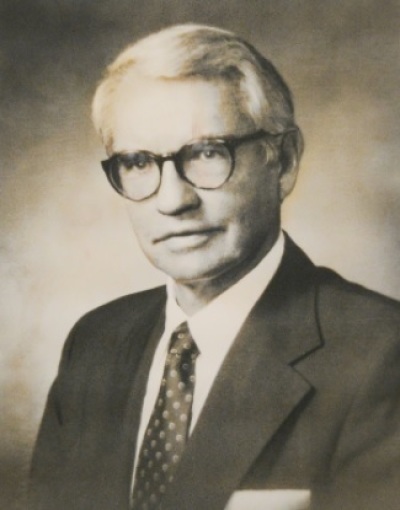James Phillips Noble, Presbyterian minister and civil rights activist, dies at 100

The Rev. James Phillips Noble, a civil rights activist and minister known for his work to "bridge cultural differences" in the early years of the Presbyterian Church (USA), has died at age 100.
The PC(USA) Board of Pensions, which Noble served as co-president of from 1986-1989, announced on Wednesday that he had passed away on March 12 in Decatur, Georgia.
“With humbleness and grace, he helped bridge cultural differences that lingered when the Church reunited more than 100 years after a bitter breakup over slavery. A child of rural Mississippi, the minister knew well the hold of Southern culture,” stated the Board of Pensions.
“Rev. Noble was transformed by the violence against Black people he witnessed in the 1960s, becoming one of the first white leaders in Anniston, Alabama, to actively support desegregation.”
Born in 1921 and raised on a farm near the town of Learned, Mississippi, Noble was the eighth of nine children, with his mother passing away before he reached the age of three.
Nobleearned a Bachelor of Arts at King University of Bristol, Tennessee, in 1942, and then a Master of Divinity in 1945 from Columbia Theological Seminary, in Decatur.
Noble pastored multiple churches and was overseeing a Presbyterian congregation in Anniston, Alabama, when the Ku Klux Klan infamously firebombed a Freedom Riders bus in 1961.
In his 2003 book Beyond the Burning Bus: The Civil Rights Revolution in a Southern Town, Noble recounted how the firebombing showed that “Anniston had the capacity for racial violence that was equal to any other community in the South.”
“That is why Mayor Claude Dear later said to me as he asked me to become chairman of a bi-racial Human Relations Council, ‘Phil, if the racial situation can be solved without violence in Anniston it can be solved anywhere in the nation. I know Anniston and I know its capacity for violence,’” he wrote.
Noble served as chair of Anniston’s Human Relations Council when it was founded in 1963, alongside four other Caucasians and four African Americans.
Then-President John F. Kennedy lauded the creation of the council, and in 2016, the City of Anniston Historic Trails Program erected a marker in honor of Noble and the other council members.
In 1983, the Presbyterian Church (USA) was created when the southern-based Presbyterian Church in the U.S. and the northern-based United Presbyterian Church in the U.S.A. merged.
The merger is commonly known as the “reunion,” as the two regional Presbyterian bodies had previously split apart during the 19th century due to different views on slavery.
The year before the merger, Noble became executive secretary of the PCUS Board of Annuities and Relief, a predecessor to the PC(USA) Board of Pensions. He is credited with helping to guide the organization in its early years.
Noble wrote Getting Beyond Tragedy, which was released in 2006. The book centered on his experiences of mourning the loss of his son, Scott, at age 13 to Leukemia, with his wife and other children contributing to the publication.
Last August, Noble turned 100, with his publisher NewSouth Books celebrating the milestone and highlighting Noble’s civil rights work in Anniston.
“Bloodshed and strife were minimized, and relationships were made across the racial divide. Bit by bit, things improved, and Reverend Noble was part of the reason why,” stated NewSouth.
“Happy 100th, Phil. And thank you for a life well-lived.”



























